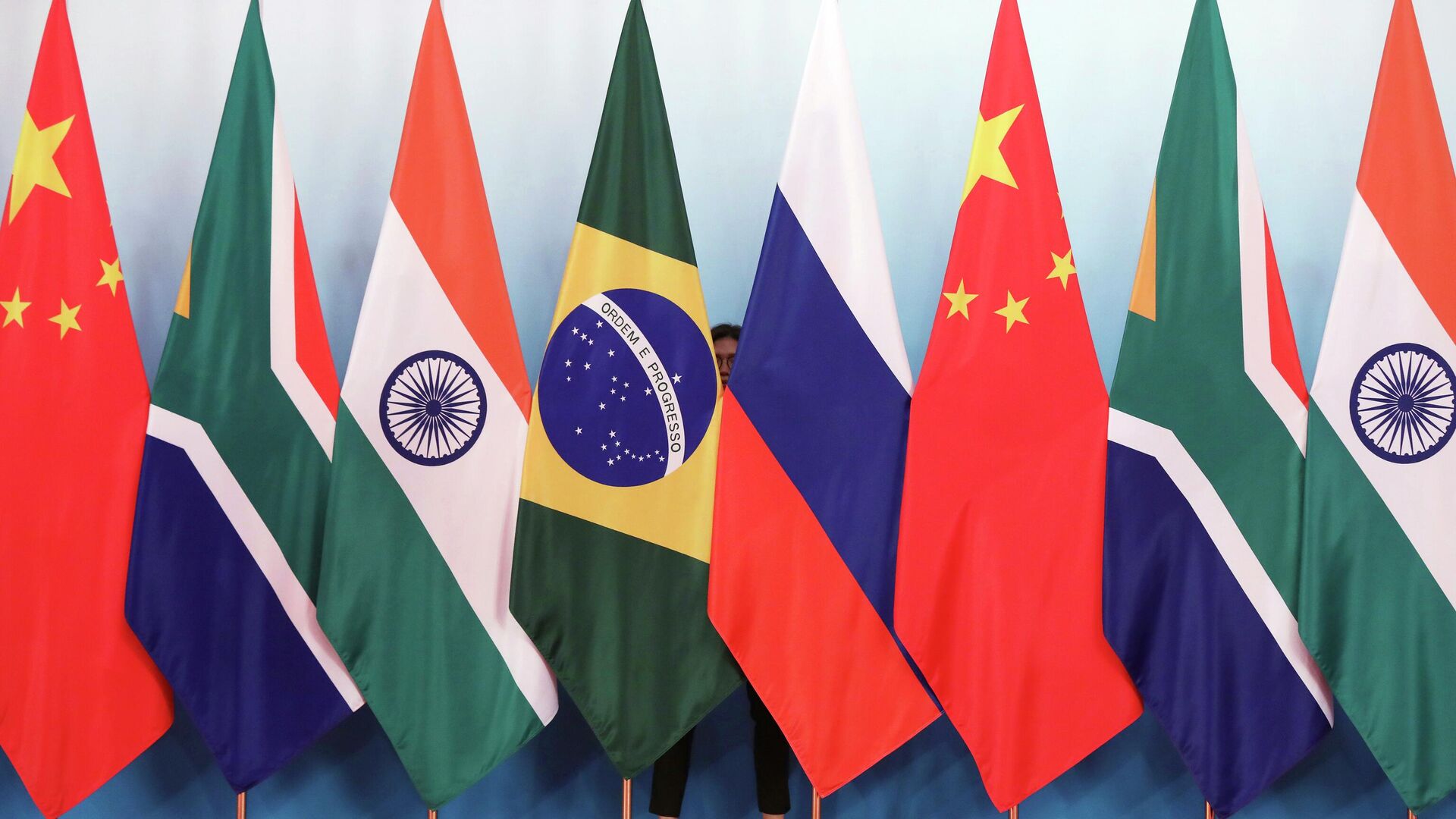New BRICS Currency May Prevent Imposition of US Laws in Other Countries

© Wu Hong
Subscribe
As the United States ramps up its attempts to punish countries it does not like through economic sanctions, a number of countries across the world started mulling the possibility of countering this threat by introducing a new currency that might challenge the US dollar’s dominance in global trade.
Earlier this year, the international economic bloc BRICS (comprised of Brazil, Russia, India, China and South Africa, hence the acronym) announced it may soon start investigating the prospects of introducing their own currency to bypass the US dollar, while South Africa's Foreign Minister Naledi Pandor said recently that departure from US dollar could help empower other nations.
During a conversation with Sputnik, Professor Alexis Habiyaremye of the University of Johannesburg pointed out that the "disproportionate advantage that the dollar enjoyed in the international monetary system" created towards the end of World War II was highlighted decades ago by then-French Minister of Finance Valery Giscard d'Estaing who even coined the term "exorbitant privilege."
"This exorbitant privilege ensures that other countries end up financing the US deficit because the US federal reserve can simply print money, while other countries have to produce goods and services to have access to the dollars," explained Habiyaremye, of the South African Research Chair in Industrial Development and Senior Researcher with DSI/NRF. "Introducing a new currency, if it were to be used effectively and systematically for all trade transactions between BRICS countries, would alleviate the burden on these countries to finance the exorbitant privilege."
"Because of the extraterritoriality of US law for all parts of the world where the US dollar is used, using a different currency would also enable these countries to avoid the arbitrary imposition of US laws on their territories," he added.
Habiyaremye also observed that the BRICS members' economic power has already surpassed that of G7 countries in terms of purchasing power parity, with BRICS and G7 contributing 31.5% and 30% of the global gross domestic product as of 2022.
"This means that in terms of economic weight, the BRICS currency has a real prospect of becoming a global currency if members commit to increasing trade exchange between themselves,” the professor said. “In terms of economic output, BRICS nations have the potential of producing most commodities and manufactured products needed in their international trade."
He warned, however, that "as long as each individual country continues privileging its trade exchanges with the US (or its monetary allies) for historical or political reasons, the BRICS currency will only remain an empty rhetoric."
According to Habiyaremye, the creation of such new currency is, first and foremost, "a matter of political determination in the strategic choices of BRICS leaders and of having enough intra-BRICS trade flows to support the economic relevance of this new currency."
"It is not enough to want to wean oneself from the dollar if the trade flows between the BRICS members or their immediate allies are not enough to support the new currency," he said.
Habiyaremye pointed out that many BRICS members currently have "larger trade flows with the US or with countries denominating their trade in US dollars than they have with each other," and thus the strength of this new currency would depend on "trade reorientation that will have to give more weight to trade exchanges between BRICS members."


